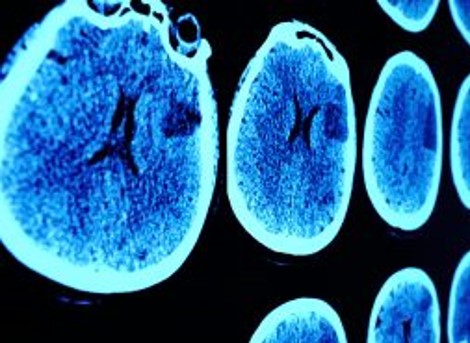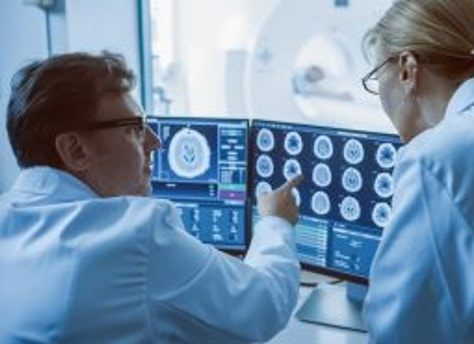|
March 2021 CASE REPORT: GENETIC TESTING IMPROVES EPILEPSY TREATMENTDiagnosed with cerebral palsy as a child, Katie's physicians at her local hospital tried to explain the cause of her severe seizures, developmental delays, muscle weakness, hypotonia and cyclic vomiting with a unifying diagnosis. It was later presumed that she had a disorder of mitochondrial function, but her care team could not identify what it was. Genetic testing done five years ago identified that Katie had a variant in the DNM1L gene; however, it was considered a "variant of unknown significance" (VUS) at the time because little was known about the gene or how it functioned. Katie recently came to the Adult Epilepsy Genetics Clinic at Northwestern Medicine for a second opinion.
Our multidisciplinary adult epilepsy genetics team reviewed Katie's previously obtained genetic test results. Our team includes Lisa Kinsley, MS, CGC, senior genetic counselor, and Gemma L. Carvill, PhD, one of the leading scientists in epilepsy genetics. Based on research that had been published after her initial test results, we postulated that the DNM1L variant might be a good fit for her condition. We requested an updated analysis of Katie's data, which confirmed she had a likely pathogenic variant in the DNM1L gene. The protein encoded by this gene is important in the fission of mitochondria and peroxisomes. Changes in the DNM1L protein lead to dysfunctional mitochondria, which are responsible for energy production in our cells. Identifying the cause of Katie's condition helped explain all the symptoms she had been experiencing that previously didn't seem to fit together. It also confirmed that the mitochondrial-targeted treatment she had been on for many years was the right approach. Finally, it helped Katie and her family connect with another individual with the same disorder. This case demonstrates the importance and utility of genetic testing as a diagnostic tool for treating patients with epilepsy, including adults. Northwestern Medicine is proud to be one of the few institutions in the country that offers this specialized clinic for adult patients with epilepsy. To date, more than 110 patients have contributed to our research aimed at identifying the genetic causes of epilepsy and ultimately, new and personalized treatments for our patients. Learn more about the clinic > View the story featured on NBC > |
Elizabeth E. Gerard, MD, is an associate professor of Neurology in the Division of Epilepsy and Clinical Neurophysiology and director of the Adult Epilepsy Genetics Clinic at Northwestern Medicine.
Refer a PatientNorthwestern Medicine welcomes the opportunity to partner with you in caring for your patients.
|
You May Also Like
|
November 2020 |





